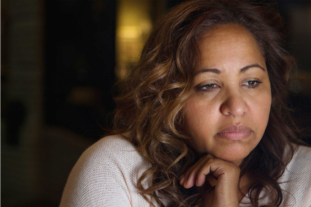In this resource, we explore some of the signs of relationship problems and look at ways to talk about the issues.
-
Signs of relationship problems
Here are some common signs that may indicate you are having relationship problems with your spouse or partner.
- Communication is limited, and when you do talk, it is often negative. You may find that one or both of you are not prepared to really listen to what the other person is saying, which can lead to resentment.
- You are arguing a lot, and often it is about the same things over and over with no resolution.
- You don’t feel supported by your partner in good times or bad.
- Your long-term goals differ from your partner’s goals. Related to this, you may find it difficult to imagine a future together.
- There is a breakdown of trust. This might start small with a feeling of doubt that can grow into suspicion and a lack of trust.
- There is a lack of intimacy and closeness in your relationship, or it feels one-sided.
- You spend less time together and have fewer fun moments together.
- There is an unwillingness to compromise on any decisions.
-
Talking about relationship problems
If you know or sense that something is not working in your relationship, then you can try to talk about it honestly with your partner. Here are some tips to start the conversation:
- Talk about your relationship problems when you’re both calm and relaxed.
- Try to plan what you want to say so that you can put your feelings into words.
- Have a clear goal of what you want to change or achieve. The conversation shouldn’t only be about venting or airing grievances – it should be about figuring out how the relationship can be improved.
- Avoid accusing language and tone. Instead of starting sentences with “you always” or “you never”, you can often get the same point across by using “I feel…”
- Listen to what your partner has to say and try not to interrupt. Ask questions to show that you’re listening and are interested in what they say.
Relationships can take a lot of hard work, patience and perseverance. It may be that your conversation doesn’t go as planned, is interrupted by kids or other events, or triggers an argument. Try to keep your expectations realistic — while you may not get the desired result this time, remind yourself that this is all part of improving the situation.
Acknowledging that there are problems in our relationship can be difficult. If you need to talk to someone, our MindHealth counsellors are available on 1300 029 131.
If your partner is violent or abusive, you can get help from 1800RESPECT at 1800 737 732. You have a right to respect and safety in all your relationships, and abusive behaviour is never OK.
If it is an emergency, please call 000.
MindHealth is a free professional counselling service operating between 7am and 9pm Monday to Saturday for people 15 years and older living or working in the Hunter New England and Central Coast regions.
Get support now by selecting one of our counselling options below.
Healthy Anger Management
It’s normal to feel angry from time to time, but sometimes the way we react and express our anger can be a problem. Read on to learn more about anger causes, warning signs and tips for management.
Learn MoreGrief, Loss & Bereavement
Grief, loss and bereavement can take many forms. Experiencing grief is hard, and you will often need help from friends, family or mental health professionals, to work through it.
Learn MoreDealing with Uncertainty
While some people thrive on not knowing what the future holds, others find uncertainty extremely stressful. Many of us feel safe when we control our environments, and not having certainty about the future can make us feel anxious, stressed and out of control.
Learn More


